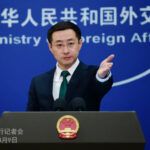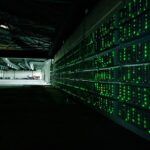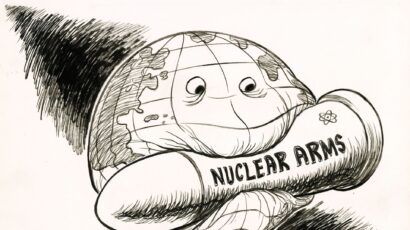This year, the Development and Disarmament Roundtable series examined issues ranging from plutonium reprocessing to lethal autonomous weapons, from nuclear modernizations to the link between technology and climate mitigation. These complex, demanding themes cry out for expert treatment—but not the sort of expert treatment that simply makes you cry out. What's needed is seriousness enlivened by passion, command of the facts matched with a clarifying instinct. That can be a tough bill to fill, but the authors below delivered the goods.
Climate: Just one more reason for Africa to slow its population growth
By Alex Ezeh
Nigerian demographer Ezeh argues that African nations—through improving girls' education, encouraging delayed marriages, and providing universal access to family planning—should seek to slow population growth. But climate change, he explains, has little to do with the wisdom of such policies. A compelling and deeply informative piece.
Reprocessing in China: A long, risky journey
By Zhang Hui
Improbably, Zhang discusses China's plutonium reprocessing efforts in a way that makes you want to know what happens next. This piece is stuffed with information that you're unlikely to find elsewhere—but it's all in the service of a forceful argument that Beijing should put the brakes on its entire reprocessing project.
How I changed my mind on reprocessing
By Klaus Janberg
Janberg, writing alongside Zhang, recounts his evolution from a young nuclear engineer convinced that "[b]reeder reactors and plutonium recycling would provide the world with unlimited cheap electricity" into a mature man convinced that "[b]reeders without a commercial fuel cycle just don’t make sense." A disarmingly personal and charming piece of writing.
Modernization and "zero": Compatible tendencies?
By Eugene Miasnikov
Miasnikov offers a clear-eyed, subtly rendered argument: Nuclear modernizations are probably inevitable, but it's possible to structure them so that they don't interfere with disarmament in the long run. What's really worrisome, Miasnikov maintains, is that the United States will pursue ballistic missile defense and conventional precision weaponry without regard for threat perceptions in other nuclear-armed states.
Hiroshima and Nagasaki: Lessons learned?
By Akira Kawasaki, Mustafa Kibaroglu, and Suvrat Raju
In this roundtable marking the most solemn of anniversaries, three authors reach the regrettable, unsurprising conclusion that the world has not absorbed the lessons of Hiroshima and Nagasaki. But then something out of the ordinary happens—a spirit of self-reflection emerges, a willingness to examine one's own nation and admit hypocrisy where it exists. A humane response to human tragedy.
Together, we make the world safer.
The Bulletin elevates expert voices above the noise. But as an independent nonprofit organization, our operations depend on the support of readers like you. Help us continue to deliver quality journalism that holds leaders accountable. Your support of our work at any level is important. In return, we promise our coverage will be understandable, influential, vigilant, solution-oriented, and fair-minded. Together we can make a difference.















